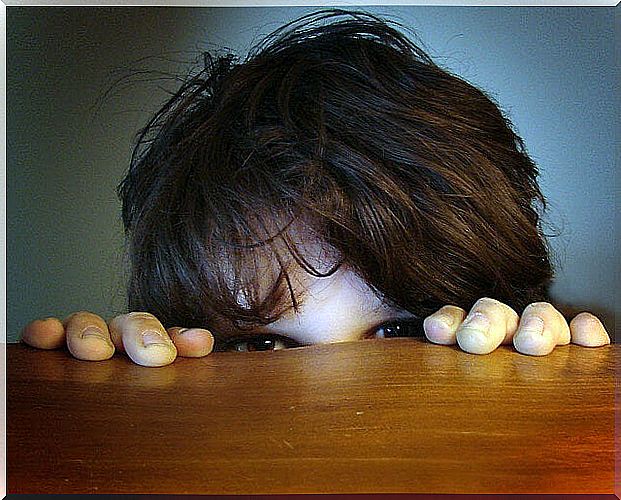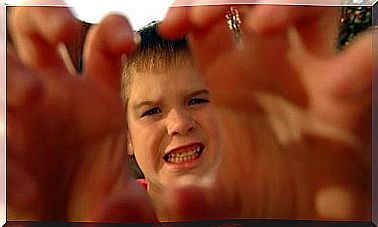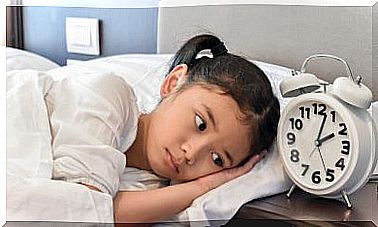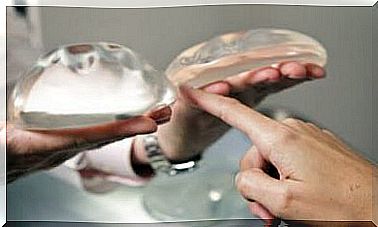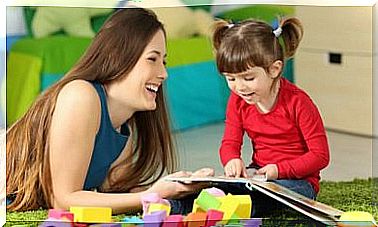Some Myths About Introverted Children
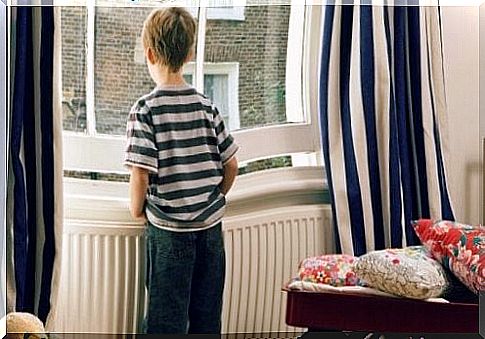
There are many myths about introverted children. They often derive from their behavior in the classroom when the teacher notices little participation and interaction with their peers.
Ironically, the opposite attitude is also a cause for concern for the educator and the representative. It seems that there is a not clearly defined ideal midpoint for the frequency of a child’s activity.
Each child’s personality is so diverse that for the teacher it would be a daunting task for everyone to align themselves on a single role model.
What are the most striking characteristics of introverted children?
Introverted children generally choose to have few personal relationships, being very selective about who they share their time with. This means that they enjoy the time they spend with their relatives to the maximum.
Other of their characteristics is that they show themselves as empathic, good listeners and thoughtful individuals. When they have to perform tasks they prefer to do them alone or with very little company and feel affected when they make mistakes.
Some myths about introverted children
Here we present and analyze some of the myths and prejudices about introverted children, surely more than once you will have heard some of them:
“A shy child and an introvert are exactly the same”
A very common confusion is thinking that being an introvert is the same as being shy. And really that is not entirely true.
On the one hand, shyness can be defined as the feeling of discomfort in social situations, associated with anxiety processes. On the other hand, introversion is the need for time alone to develop ideas and recharge energy.
An introverted child can cope without problems in situations of a social nature, but in the same way they feel the need to have moments in solitude.

“They are not normal”
This is one of the myths about introverted children that is repeated the most by word of mouth; they are classified as “strange” by the fact that they do not try to be like the majority.
The reality is that they are individualistic people who expect to be valued for their way of thinking. Popularity has no influence on decision-making as it usually does with other children.
“Loneliness is your only friend”
Introverted children enjoy spending time alone thanks to their analytical and reflective nature, but this is not to say that they dislike having company. The connections they establish with their peers will always be selective and of quality.
Their mind is a fun machine that produces solutions, which they enthusiastically share with their friends.
Leadership is not for them
Contrary to what may be thought, these types of people promote good teamwork environments. Like extroverts, introverts can become excellent leaders by standing out with brilliant ideas, empathy, and high-quality critical thinking.
When communicating with an audience, they tend to be more clear about what they are going to contribute, since they spend much more time defining and maturing ideas.
“They don’t like to talk”
If they really have nothing to say or the subject does not seem striking, they will not say a word. Introverted children only talk about those topics that have caught their attention.
They are generally better listeners and observers than speakers, so impulse is not why they would strike up a conversation; They are the kind who carefully analyze their opinions before sharing them.
Their internal monologue does not stop, so the fact of being listened to by those who accompany them or not does not take away their sleep.
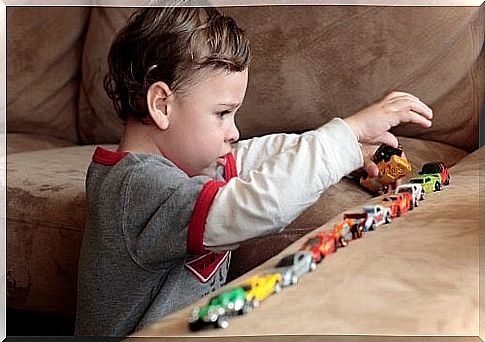
“They do not have fun or relax”
They find fun and relaxation in contact with nature or in the favorite place of the house, public or crowded spaces are definitely not their favorites.
They do not pursue strong emotions or adrenaline rush. Many people talking at the same time and excessive noise induces them to confine themselves. Activities that require little stimulation are accepted; solving a sudoku puzzle, a little reading, and helping a friend solve a problem is one of his favorite activities.
They appreciate their time alone, and they take advantage of it by organizing their ideas and projects.
“They are negative or depressive”
His personality can be interpreted as negative due to his affinity for loneliness. The opposite is the case with extroverted children, who become depressed when they spend a lot of time without company, so the association with this state with depression is logical.
Beyond that, it’s just another one of the myths about introverted kids.
